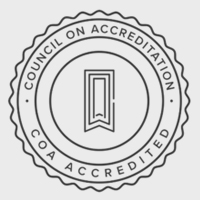Mentorship is one of the most meaningful ways an adult can show up in a young person’s life. Whether formal or informal, these relationships provide guidance, encouragement, and connection that can profoundly shape a young person’s future. Mentoring doesn’t require a fancy title or years of training—often, it’s about being present, consistent, and willing to invest in someone else’s growth.
What Does It Mean to Be a Mentor?
A mentor is anyone who takes the time to provide support, encouragement, and wisdom to help someone else navigate challenges or reach their potential. For young people, this might mean having someone to turn to during difficult times, learning new skills, or simply feeling valued and heard.
Research shows that mentoring relationships can lead to positive outcomes like improved academic performance, better emotional regulation, and increased self-confidence. Studies highlight that youth with mentors are more likely to graduate from high school, attend college, and build strong relationships later in life.
How Adults Can Show Up as Mentors
You don’t have to be part of a formal program to be a mentor. Everyday interactions can make a lasting impact. Here are some ways adults can show up for young people:
- Be Present and Consistent: Young people thrive on stability. Being a consistent presence in their lives—whether as a teacher, coach, family member, or neighbor—helps them feel secure and valued.
- Listen Without Judgment: One of the simplest yet most impactful things you can do is listen. Create a space where a young person feels comfortable sharing their thoughts and experiences without fear of criticism.
- Share Your Experiences: Mentorship isn’t about having all the answers. Sharing your own challenges and successes can help a young person relate to you and see what’s possible for their own future.
- Encourage Their Strengths: Help young people identify and build on their strengths. Celebrate their successes, no matter how small, and remind them of their potential when they face setbacks.
- Support Their Goals: Whether it’s helping with schoolwork, offering career advice, or cheering them on at a sports event, showing interest in their goals reinforces that they matter to you.
Why Mentorship Matters
Mentoring benefits both the young person and the mentor. For youth, it fosters resilience, self-esteem, and a sense of belonging. For adults, it offers personal fulfillment and the opportunity to develop leadership and communication skills.
For more insights into how mentorship impacts young people, check out these resources:
How to Start Mentoring
If you’re ready to step into a mentoring role, here are a few ways to get involved:
- Volunteer with a local organization that serves youth, such as Tanager.
- Look for opportunities in your community, such as coaching or tutoring.
- Simply invest time in the young people already in your life—family members, neighbors, or students.
Mentorship doesn’t require perfection—just a willingness to show up, listen, and care. By stepping into this role, you can help shape a young person’s future and, in the process, discover the power of connection and growth for yourself.
Are you ready to make a difference? Contact us today to learn more about volunteer and mentorship opportunities at Tanager.


